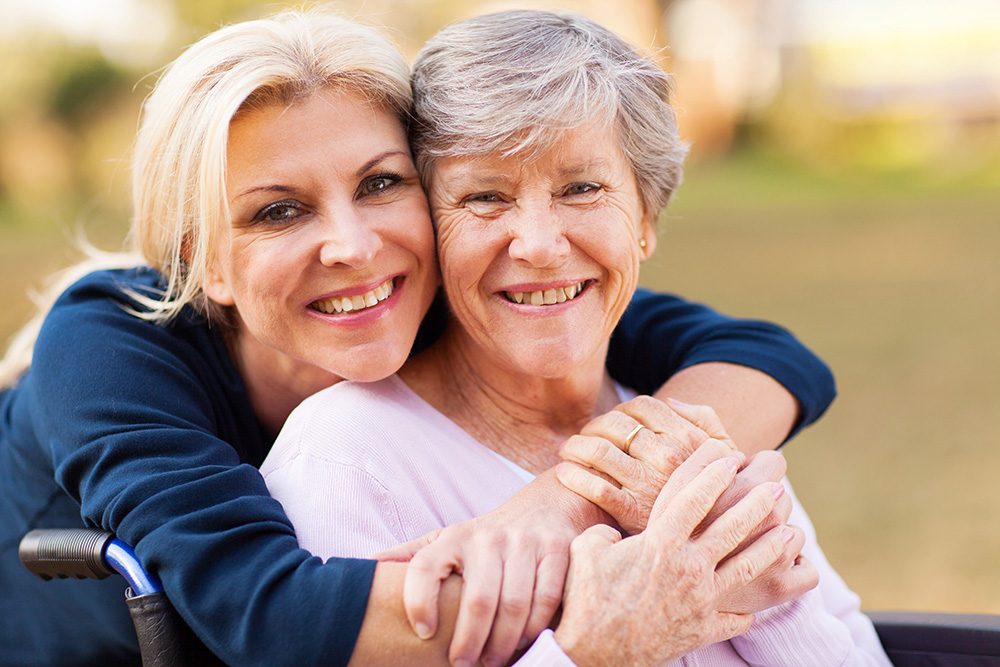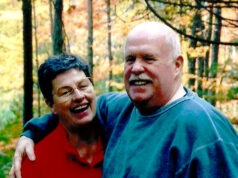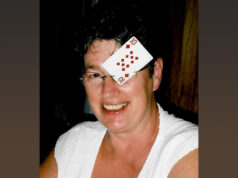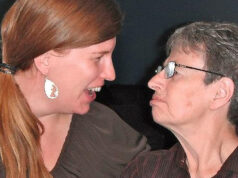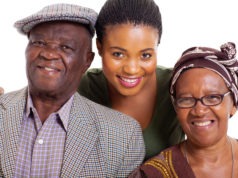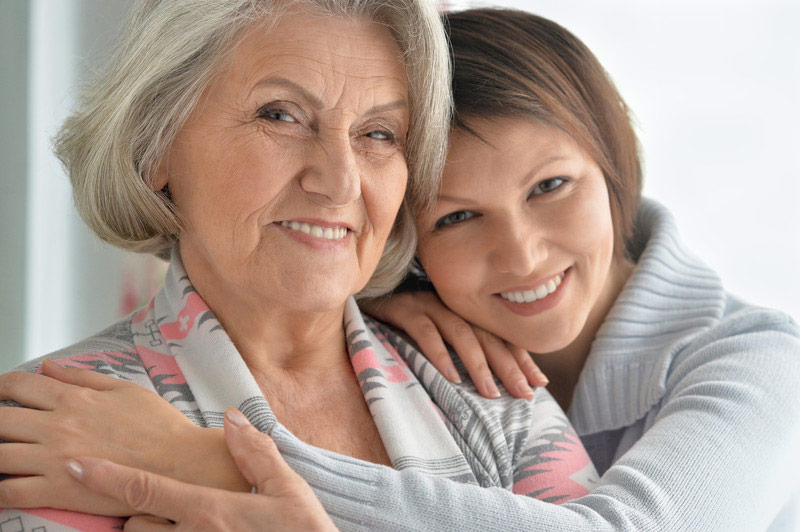What does it mean to be empowered with Parkinson’s? Lianna Marie, CEO of AllAboutParkinsons.com, joins Suzanne to address what to do as people with Parkinson’s get older — and caregivers take more control over decisions — and feel a loss of autonomy.
Lianna realized with her mom that she was making mistakes and had to course-correct, providing choices to empower her. We own our lives. It’s the ability in decision-making to be able to listen and consult with doctors, but be able to see what’s working over time and doctors don’t know her completely, only seeing them once or twice a year, and that doesn’t mean they know about her own body. Her mom learned to trust her gut, and tell medical practitioners what they’re experiencing when it conflicts with their expectations, what’s working and what’s not working to improve your quality of life.
Lianna’s book “The Parkinson’s Path” will be coming out later this year. Currently, ”The Complete Guide for People With Parkinson’s Disease and Their Loved Ones” is available at Amazon. Find more of Lianna’s podcasts at her Expert page on the Answers for Elders website.
Suzanne: And welcome back to segment number three with Lianna Marie with AllAboutParkinson’s.com. And we are talking about the whole path of Parkinson’s. How do we cope? What, how do we focus? And now we’re talking about being empowered with Parkinson’s, Lianna, and very interested in what you mean by this.
Lianna Marie: Well, this is a big topic I like talking about, I think anyone likes to be empowered now, that we use that word a lot, and more I think than we used to back when I was younger. But this idea that we own our life, like when you are diagnosed with a chronic illness, and it feels in an instant, perhaps that this isn’t you anymore. And it’s Parkinson’s, and we often talk about people who feel like their identities have completely shifted or changed, and that they are Parkinson’s now and they’re like, I don’t want to be Parkinson’s. I don’t want to be a person with Parkinson and I wanna be me still, and often what happens over time, but no fault to the person with Parkinson’s, or the care partner, is that that person ultimately often loses control. What they feel like is control over their own life because lots of different voices are telling them what they should do with their diagnosis, what they should do with the progression of their disease, what they should do. Da da, da, da da. There’s a neurologist maybe suggesting this drug or this drug, there’s different doctors that are chiming in, saying no, but don’t try this, do this, this is what you should do, and there’s the person with Parkinson’s. I know, what happened to my own… I wanna be able to talk to folks right now about owning that, and being able to take back that control to the extent that you can. It will vary depending on what stage you’re in of Parkinson’s.
And certainly we can speak to the later stages where my mom had dementia, and your mom too, where that control does get taken away a little bit because, not completely, but because you can’t make those decisions for yourself anymore. The way I see empowerment is the ability to have control, to have autonomy, to be able to say in decision making, OK, you know what, I’m calling the shots as much as I’m gonna listen. I’m not saying — because everybody needs some experts in the world, the field of Parkinson’s, it’s good that you consult with your doctor,and they are ultimately gonna help you make the best decisions for you. But what I think we sometimes do is — and I agree why we do it — we just say, ok, you doctor, you’re the expert, you tell me what to do, and then you see them once a year, maybe once every six months, you know, a neurologist often doesn’t see their patients more often than that. And then you think, well, why did they suggest this, and that’s not working, or whatever? And then you don’t see them for another year, and you’re like, Well, that’s not working for me.
Over time my mom realized this, that a doctors don’t know her completely, because they’re only seeing a very small, small portion of what her life looks like. And even if they are really up to speed on Parkinson’s, that doesn’t mean they know what my mom knows about her own body. Like this whole idea that you trust your own gut, you trust your intuition. If something’s not quite right, I think this is where I wanted to go with. The empowerment is my mom over time learned. You know what, I am gonna trust that. And if the doctor is saying something to me, I’m not suggesting you be combative with your doctor. But a lot of people say, you know what he said did just didn’t quite ring true. And initially my mom just kind of went with it and said, all right, well, he’s a doctor, I guess he knows best, instead of saying, well, actually doctor, can we talk about that? Because that doesn’t seem like to be how my Parkinson’s is showing up. Because we know that Parkinson’s look different in every single person. So to be able to say for my mom, over time, to be empowered, to say, you know what, and trust that I know me better than anybody knows me. And I’m gonna tell my doctor or my nurse or my care care partner no, this is what I’m experiencing. And I think that that’s is so good for everyone because ultimately, the person with Parkinson’s has to live with that person with Parkinson’s the most right? You’re living with your life, you got to feel like you are in control of everything that you can control. and that will make you feel better. It will ultimately make everybody’s lives better because you’re inputting, you’re giving us feedback onto what is working and what’s not, and how we can make your quality of life better. That’s something that I just found over time with my mom. It was important.
Suzanne: You know, I, there’s a couple of things you said that really resonated with me. Number one, I really believe that you do have a voice, no matter who you are, and sometimes that voice has to come through your care partner. There’s an absolute responsibility in being that care partner, is really understanding their highest values. What’s most important? I know with my mom, I had to put a different hat on, because things that were most important to her would not necessarily be the ones that would be most important to me. And I realized that I had to be her advocate, and so I made choices on her behalf that I wouldn’t have made for myself. And that was kind of interesting, because I knew that it was her life, and that was the number one thing I think that as a care partner realizing that you have a responsibility to advocate for that person and their ideals, which means having those conversations up front, so that you understand that you’re acting in their best interest.
And the second point that I really wanna um bring it up too, and this is really the key of all of this, is establishing an area of trust between the care partner and the actual person that has a chronic illness, whatever that is, because one of the things that happens is, is that if you have a voice and if you can trust that care partner is going to make those choices for you, you know, that you’re in good hands. I think a lot of the anxiety with families today is that trust factor isn’t there. They may feel like their son or daughter is not gonna ask act in their best interests because they’re too busy with their own lives. I would admonish those that are listening to this podcast is, take the time to learn what those values are. If you have a senior loved one, a husband, even a husband and wife — I’ve talked to my husband several times about what would you think if, and, and, and some of the things kind of surprised me. You never know…
Lianna Marie: You don’t know until you ask…
Suzanne: No. You think you know somebody so well, but you don’t and…
Lianna Marie: What, that’s what you would want? I did not know that!
Suzanne: Yeah, you don’t want a memorial service or anything like that? You just don’t know. And, and so those are the things I think that’s really valuable about having these kind of conversations, and having that trust factor is empowering, because you know you can trust that loved one and vice versa. And those are the two things that ome up for me as you’re talking because I think no matter what, when you can’t speak for yourself, and there will be days when you can’t, whether you’re hurting, you’re sad, you’re in an emotional state or dementia or whatever that might be, you have to be able to trust someone. And that’s the piece where if we’re care partners, our number one mission in this world is being trustworthy.
Lianna Marie: I want to say, that this reminds me, because when I do my care talks for people with Parkinson’s for care partners, I talk about the three knows, the three K-N-O-W-S. And that is know Parkinson’s, but most important and that’s the least of the three, know Parkinson’s, know your loved one — your spouse, whomever you’re caring for — and know yourself. Because all those three things, honestly knowing Parkinson’s is like this tiny little piece of the pie. Knowing your loved one, the person you’re caring for, like you just said, so that you can develop that trust — because what I thought was important to me, and what would have been important to my mom was not what got her inspired or what got her laughing or what got her encouraged, isn’t the same as me. And maybe there’s a little bit of psychology here, we’ve got to start learning about understanding that all humans are not the same, even if it’s your mom, and you’re super close to your mom, she’s not the same. And then knowing yourself is the last one, because how can I help anyone, if I don’t know what my limits and boundaries are, and that kind of thing? And I’m OK advocating for my mom and going to bat for her, and going to a doctor’s appointment with her, not everyone is OK with that. But being able to communicate that with your loved one, your spouse, to get that trust and say, hey, this is our deal, right? This is what we’re gonna do, and we want to have those conversations — in a perfect world, well before we have to have the conversation.
Suzanne: Exactly. Exactly. And Lianna, what you said is so valuable because I think a lot of times we tend to not talk about the elephant in the room, and the fear that maybe mom may have over having a diagnosis like this. UBe that person that they can talk to and it almost goes back to our first segment where just be there. But it’s part of that consistency of being that person and knowing that they can always count on you for something. But also at the same time in knowing myself, set healthy boundaries. There’s always exceptions, if there’s an emergency or something like that, but set a schedule, make sure that they understand what is expected on both sides,manage expectations. You know, that’s a big part of it.
Lianna Marie: Yeah.
Suzanne: So in our next segment, Lianna and I are going to be talking about Standing Strong, and I love how you titled these episodes. And so, episode four, Lianna and I are coming back right after this.






